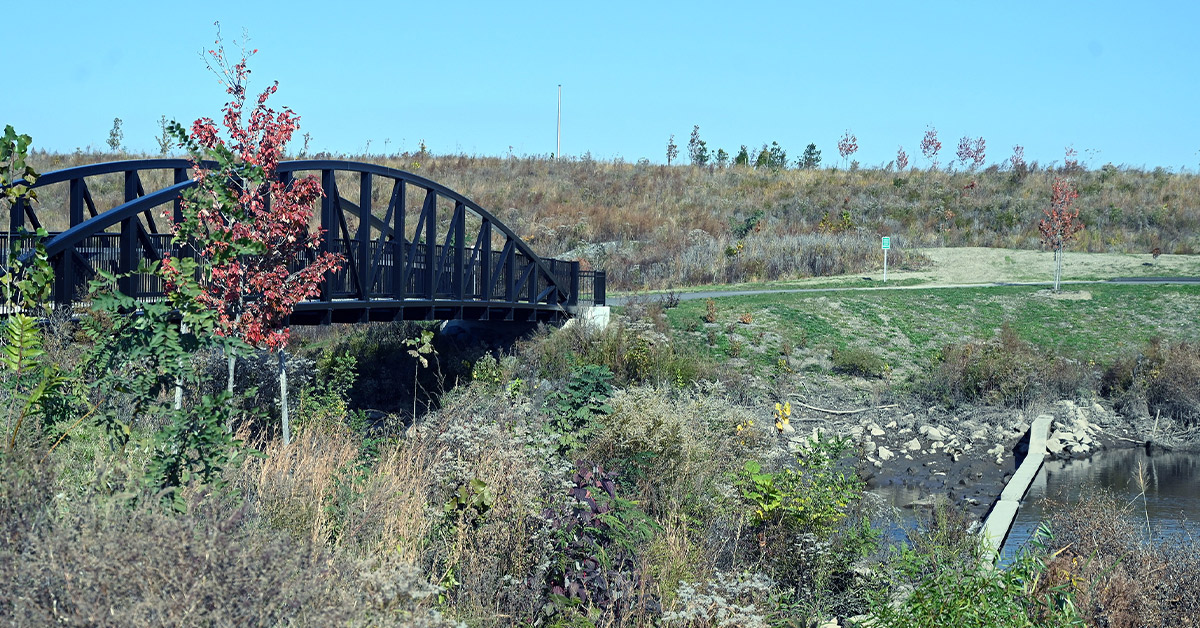

Image of Cramer Hill Waterfront Park in Camden. Photo courtesy of Camden County Government
This story was produced in collaboration with CivicStory and the NJ Sustainability Reporting project.
ATLANTIC CITY — While New Jersey’s Clean Energy Fund was expected to be a life saver for urban communities of color in transitioning to sustainable sources of energy and upgrading costly infrastructure, Gov. Phil Murphy’s budget this year slashes millions from the program and diverts those funds to other areas, despite a state surplus.
This has angered leaders of many sustainability groups, like Allison McLeod from the New Jersey League of Conservation Voters, and New Jersey-based Marcus Sibley, director of conservation partnerships at the National Wildlife Federation. According to NJ.com, the Clean Energy Fund, which pays for New Jersey’s Clean Energy Program, is paid for annually by fees collected on natural gas and electric bills, called “societal benefits charges.”
The nonpartisan think tank New Jersey Policy Perspective said that total should have reached $344 million this year, but fell well short of that. “We are extremely disappointed in continued raids on clean energy funds,” said McLeod, the league’s senior policy director, in a press release. “These funds, paid by ratepayers, are an important tool the state has to confront our climate crisis by investing in clean energy projects and ensuring low- and moderate-income New Jerseyans have access to energy efficiency programs.

Marcus Sibley
“Too often, historic lack of investment leads to issues such as drinking water contamination, sewer overflows, and failing water infrastructure in underserved communities of color. We need to be able to trust the water that comes from our taps. Investing in water infrastructure today is an investment in our health and our economy, and New Jersey’s residents deserve to see a commitment to funding water infrastructure and clean water projects.”
Sibley said the issue in New Jersey crosses partisan lines, noting that Murphy and both chambers of the state legislature are controlled by Democrats, who have often been the biggest advocates nationally for environmental and sustainability efforts.
“How long should we continue to vote for people when they make decisions against people that look like us,” Sibley said in decrying the “raid” on the Clean Energy Fund. “How much longer will it take for us to start holding people accountable who don’t have an interest in our health?”
Sibley said while the $274 million currently budgeted is desperately needed, it’s a “drop in the bucket” for what the state should be doing, particularly in urban areas where people of color in places like Camden continue to face major water infrastructure issues.

“New Jersey needs to invest $30 billion in water infrastructure,” McLeod told Front Runner New Jersey.com, echoing Sibley’s words. “That includes a little over $2 billion in funding needed for LED service line replacements, which obviously, has a public health impact.
“So for us, there’s research that shows that if you make that billion dollar investment in water infrastructure, it creates over 13,000 family-sustaining jobs, and it spurs an additional nearly $3 billion in economic benefit; all of which will help to maintain affordable water and sewer rates for New Jersey families.”
McLeod said while the fund appeared to be used partially to help fund NJ Transit’s effort to move to cleaner buses, the money ultimately would have been better spent where it was originally intended.
“Especially in a year where there’s such a surplus in the budget, we would like to see the Clean Energy Fund remain dedicated to its intended purpose,” McLeod told Front Runner New Jersey. “The Clean Energy Fund is not only just good for the environment and good for clean energy, but it’s good for ratepayers to know that the percentage of their bill that comes off and says it’s going towards clean energy costs is actually being used for clean energy.”
In March, the Murphy administration did point out that the Clean Energy Program’s $274 million in the new budget cycle to support clean energy programs is well above the average of the $177 million under the administration of former governor and current Republican presidential candidate Chris Christie.
Sibley told FRNJ, though, that a message should be sent this fall with the upcoming elections, when all of New Jersey’s assembly and senate seats are up for grabs. He said candidates should be asked directly at debates and candidate gatherings where they stand on sustainability and environmental issues, particularly where people of color are affected.
McLeod did give the administration a passing grade in its funding of urban parks in the current budget.
“Investments in urban parks, as well as a New Jersey Capitol Park, are an important part of the movement toward environmental justice by ensuring that more New Jerseyans, no matter their zip code, race, or income level have access to outdoor recreation opportunities,” McLeod said.
“We would also like to thank Governor Murphy and the Legislature in providing full funding for the Delaware River Basin Commission, which will help the multi-state agency continue its important work protecting the drinking water of millions of New Jersey families, as well as Assemblyman Joe Danielson for securing additional resources for towns to take action to address the growing threat of warehouse sprawl.”
This story was produced in collaboration with CivicStory and the NJ Sustainability Reporting project.
